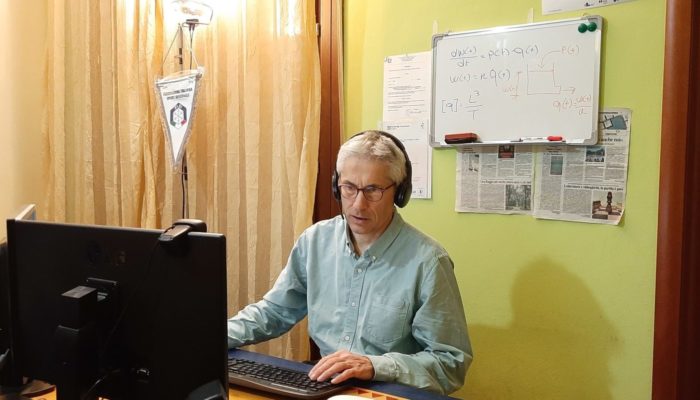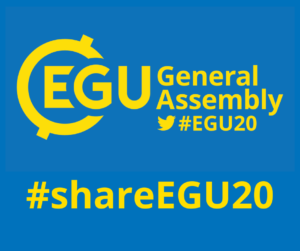
What can the Earth, planetary and space sciences do to help mitigate the impact of COVID-19?
While I am considering this challenging question, I am looking out of the window of my home in Italy, in Reggio Emilia. I am close to the epidemic center of the Italian outbreak of COVID-19. I have been at home for the last two weeks without going out, something which I have never experienced before. Suddenly, my life has changed in an unpredictable way, and I know that it will never go back to its previous configuration. I am rigorously respecting the directives of the national and regional governments, who suggest that people must not leave their homes except for urgent needs.
During the last two weeks, our collective experience of remote networking and social media has expanded at the same rate as the virus. There is a genuine and higher-than-usual wish to take care of family, to get connected, to complete one’s duties and to cooperatively work to mitigate this emergency. I have never before experienced such a broad public trust in science and health institutions at all levels. We know that in some cases emergencies can give new energy to people, new strength that will help us to persist and recover, provided we react positively.
Personally, I am strongly motivated to continue teaching so that students’ careers do not suffer. With the help of proper technology, I have discovered that remote teaching is great. I think it allows students to gain an innovative perspective in terms of exploring and understanding Earth, planetary and space sciences. I was never so excited in my teaching as in these two weeks and have never experienced so much enthusiastic support by the students who are attending my lectures from different countries. Their motivation to try new teaching methods and their interaction with myself as the teacher are unprecedented. It’s precious fuel that to me represents our societal reaction to the current global crisis.
However, the most challenging question right now I feel is what we as researchers can do to support the collective effort to fight the virus. The current emergency clearly demonstrates that challenging research questions still need to be answered to further safeguard humanity from regional and global threats of many kinds. For some geoscientists, this is particularly relevant right now as they are specifically working on topics related to medicine and virology. Some are studying the connections between climate, the water cycle and diseases and many other interactions between human and natural systems. However, I strongly believe that COVID-19 is a problem that goes beyond individual disciplines or groups of disciplines. The current global threat requires a collective and unified effort of science and education as a whole.
 The first commitment we need must be that science must go on. For this reason, it was important to me that EGU made the decision to move as many of its General Assembly activities as possible online after we were forced to cancel the physical meeting in Vienna. I would like to issue a call to the geoscientific community to stay tuned and attend these activities, which we are now calling #shareEGU20. It will be the best way to demonstrate how much we feel committed to providing our contributions to science regardless of COVID-19. The second commitment is to be unified and open in our activities and to take this opportunity to innovate the way we do research. The emergency is clear proof of the importance of open information, open science and transparent communication. This is a unique opportunity to revisit how we teach and interact, and how we work together and share information.
The first commitment we need must be that science must go on. For this reason, it was important to me that EGU made the decision to move as many of its General Assembly activities as possible online after we were forced to cancel the physical meeting in Vienna. I would like to issue a call to the geoscientific community to stay tuned and attend these activities, which we are now calling #shareEGU20. It will be the best way to demonstrate how much we feel committed to providing our contributions to science regardless of COVID-19. The second commitment is to be unified and open in our activities and to take this opportunity to innovate the way we do research. The emergency is clear proof of the importance of open information, open science and transparent communication. This is a unique opportunity to revisit how we teach and interact, and how we work together and share information.
It will take a long time for many of us to recover from the impacts of COVID-19. I have no doubt that we will succeed provided we are positive and act with a lot of energy and cohesion. Science, across all of its disciplines, has a relevant role to play in this crisis. If we are able to be open to change, work together, share information, use modern technologies and actively support each other, then we will be able to generate a new science for the benefit of both current and future generations.
